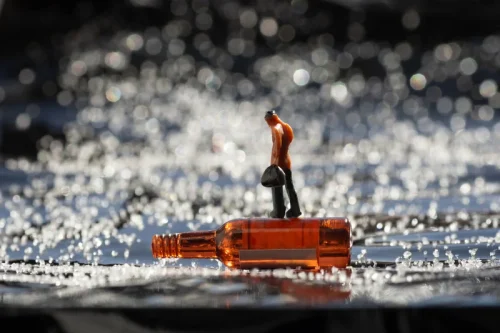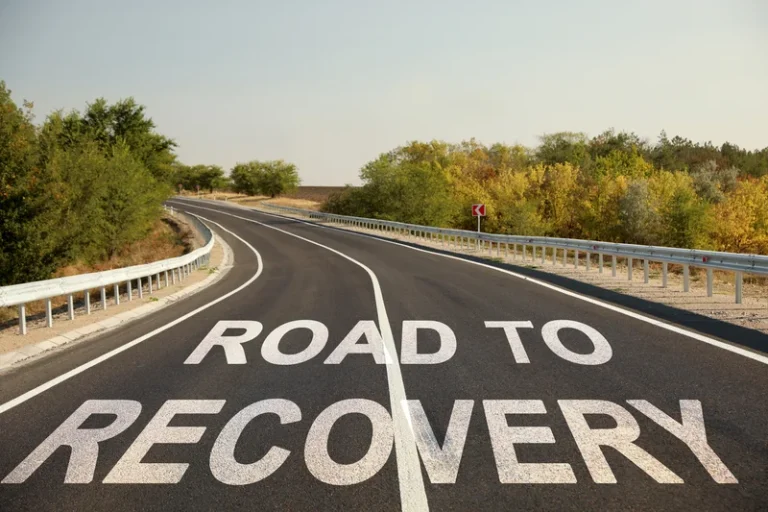
People who stop drinking can also experience depression, irritability, and agitation. If you notice that you feel emotional symptoms after quitting alcohol, then it is also important to address how you feel. Talking to someone at our 24-hour recovery hotline at Alcohol Awareness can help you identify ways to ease your mental health symptoms as you adjust to life in recovery.
- Even if you do experience a panic attack when you stop drinking alcohol, it is good to know that they are manageable.
- If you’re concerned about someone who drinks too much, ask a professional experienced in alcohol treatment for advice on how to approach that person.
- When the body feels physical stress it also tends to feel mental stress because the physical symptoms are interpreted by the brain as stress and worry.
- Here you can find useful links and phone numbers to get the support you need.
- Behavioral changes often accompany physical symptoms of alcohol-induced anxiety.
- But if you develop a pattern of drinking to avoid anxiety or need alcohol to feel relaxed, this can start a vicious cycle where alcohol worsens your anxiety long term.
What the DSM-5 Says About Addiction
It also discusses when to see your healthcare provider about symptoms. Panic attacks during alcohol withdrawal are most effectively managed by medical professionals in a clinical environment. Contact an evidence-based treatment program for the care you need to overcome alcohol withdrawal.
Anxiety and depression
If you or a loved one uses alcohol to cope with anxiety, especially during socializing, it may lead to being dependent on alcohol, especially in social settings. While everyone may experience anxiousness from time to time, a person who has an anxiety disorder often finds their anxiety doesn’t go away and may actually get worse with, or without provocation. In fact, drinking can change the chemistry of the brain in a way that actually makes anxiety worse. Knowing how alcohol affects anxiety may make it less tempting to have a drink to cope. One of the worst things about panic attacks is the intense fear that you’ll have another one.
Professional Treatment Options
- Over 25% of people with OCD also suffer with an SUD (substance abuse disorder).
- If needed, your psychiatrist can also refer you to a Talkiatry therapist.
- While the depressant effects of alcohol may work to mask existing anxiety, over time it tends to make the issue worse due to how dependent the brain becomes on the ethanol in alcohol.
- Research shows that approximately 25 percent of people seeking treatment for a panic disorder also have had alcohol dependence at one time in their life.
- People talk about stress coping activities like meditation and yoga, but coping itself isn’t an activity but a mental skill.
Seek support if hangxiety keeps you from completing daily activities. A healthcare provider might assess you for anxiety and depression if you have hangxiety frequently. They might suggest limiting or avoiding alcohol if it causes or worsens anxiety and depression symptoms. Healthcare professionals caution against taking antianxiety medication while drinking alcohol. Developing coping strategies and seeking support are essential steps in managing anxiety during this transition. Engaging in therapy, whether individual or group-based, can provide valuable tools for addressing underlying triggers and learning healthy coping mechanisms.
Both acute intoxication and cessation of prolonged drinking may lead to increased anxiety and panic episodes in susceptible individuals. Panic attacks and anxiety disorders are complex psychological conditions that can significantly impact daily life. These conditions often involve intense feelings of fear, worry, and physical symptoms that can be overwhelming for those affected. Panic—part of the fight-or-flight response—is a normal reaction in times of extreme stress.
- This is of particular concern when you’re taking certain medications that also depress the brain’s function.
- Similarly, if you find yourself regularly experiencing the symptoms of an anxiety disorder—including panic attacks—it’s important to seek help.
- It’s also possible for chronic alcohol use to contribute to existing anxiety or lead you to develop an anxiety disorder.
- Not everyone will experience DTs symptoms, but those that do may have tactile or auditory hallucinations, disorientation, alcohol withdrawal seizures, high blood pressure, panic attacks, and more.
- It is not recommended to use alcohol as a coping mechanism to avoid panic attacks and feelings of anxiety, as this can make the initial problem worse in the long term.
- It explains what a panic attack feels like and possible complications.
Anxiety and Alcohol: Does Drinking Worsen Symptoms?

You might have felt anxious before a job interview or giving a speech to a large audience. It also disrupts your body’s ability to manage stress, lowering overall stress tolerance. Over time, you will become stressed more easily by everyday life and experience lower mood quality. Bottom line, if you’re going to treat your anxiety and depression with medication, you especially do not want to continue drinking. This is why so many people suffer from “hangxiety” the day after a night of heavy drinking. Many people who have issues with alcohol also have difficulty with anxiety and mood.

A primer on anxiety disorders

Alcohol is often used as a coping mechanism for anxiety, but this approach carries significant risks. Individuals may develop tolerance and dependency over time, potentially worsening their anxiety symptoms. These physical sensations closely resemble panic attack symptoms, potentially setting off an anxiety spiral. Severe withdrawal can cause hallucinations or seizures in some cases. Generalized anxiety disorder involves chronic, exaggerated worry about everyday life.

Alcohol consumption can have immediate effects on anxiety levels, sometimes leading to anxiety attacks or heightened anxiety shortly after drinking. While alcohol may initially induce a sense of relaxation or euphoria, especially in social settings, its impact on brain can alcohol cause panic attacks chemistry can quickly turn detrimental for individuals prone to anxiety. The relationship between alcohol use and anxiety is complex and multifaceted. Discover how alcohol and anxiety may be interlinked, including why panic attacks and anxiety symptoms may occur after drinking alcohol.
- Do you notice after a day of drinking that your anxiety symptoms feel worse?
- At CalmClinic, we believe that information is only as helpful as its accuracy.
- If you rely on alcohol to mask anxiety, you may find you become reliant on it to relax – putting you at risk of alcohol dependence.
- Participating in a treatment program helps you to grow physically, mentally, and emotionally stronger.
Similarly, if you find yourself regularly experiencing the symptoms of an anxiety disorder—including panic attacks—it’s important to seek help. Anyone can experience anxiety—or “hangxiety”—after drinking, even if you aren’t dealing with alcohol dependence. However, if you find yourself frequently https://ecosoberhouse.com/ experiencing anxiety and regret after drinking, particularly after heavy drinking, it may be a sign of a more serious problem. The more you drink, the more likely you are to induce chemical changes that can trigger panic attacks and other health problems.

No comment